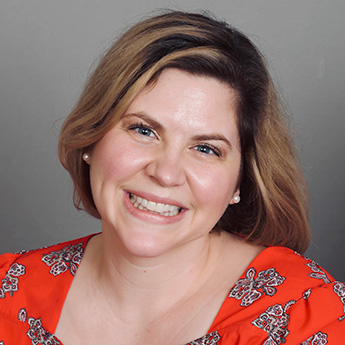Mental health care is self-care
By Michelle Owens, DO, FAAHPM

May is Mental Health Awareness Month, an important month to destigmatize taking care of your mind as an act of weakness, and rather as an act of self-care.
The last three years have only highlighted the need for mental health awareness and normalization of caring for our minds with as much intention as we care for our bodies. The most recent survey from Medscape’s “I Cry but No One Cares: Physician Burnout & Depression Report” this year, again highlighted that 25% of U.S. physicians identify as feeling depressed. Approximately 10% of U.S. physicians continue to report suicidal ideation and we sadly lose 350 to 400 physicians each year to suicide. This data has remained consistent over the last three years, which further highlights the need to focus on our mental health. After all, mental health care is self-care.
Athletes, celebrities, and fan-favorite TV shows, like Ted Lasso, have emphasized the importance of focusing on mental health as non-negotiable for being human. In the medical community, the Dr. Lorna Breen Health Care Provider Protection Act wrote into law that health care workers are protected from any retaliation for seeking mental health treatment. This is huge, as it has been such a barrier in the past to many physicians seeking treatment.
The amount of grief we have all been carrying for the last three years alone warrants a therapist for processing and moving forward. We have all experienced tremendous loss — whether that of a loved one, loss of a dream job, loss of a pet, loss of a coworker due to attrition, loss of childcare, loss of innocence for the world we live in, loss of trust in our government, mistrust from patients, and the list goes on. These losses are often experienced as disenfranchised grief — a grief that is not honored in the same way a traditional loss would be. It is often not openly acknowledged as legitimate by society and has been noted as a contributing factor to physician burnout, both pre- and post-pandemic.
We are experts at caring for others yet often do not tend to our own emotional needs.
Gratitude and self-compassion practices have been more broadly accepted and adopted amid the suffering of the pandemic, with evidence to show improved emotional well-being and coping skills. Self-reflection practices may be helpful to center on how the loss has both impacted the individual and how it will move them forward.
Self-compassion can help us reframe our thoughts around grief to be able to move forward. It entails being warm and understanding toward ourselves when we suffer, fail, or feel inadequate, rather than ignoring our pain or flogging ourselves with self-criticism. World-renowned self-compassion researcher Dr. Kristin Neff suggests that tapping into self-kindness, common humanity, and mindfulness allows us to sit with our grief in a way that allows us to eventually let go. Self-compassion is generally associated with less distress and more adaptive coping mechanisms. The art of practicing self-compassion has also been shown to be an antidote to shame and guilt, which are feelings that often come up around grief. The art of empathetic listening, validation, and tenderness allows us a safe space to begin to honor our emotions regardless of where we land on the spectrum. Self-compassion practices have been shown to activate the parasympathetic nervous system response, while decreasing the sympathetic nervous system response by decreasing cortisol and heart rate. It has been shown to help improve sleep, well-being, and positive functioning in the midst of stressors. When combined, self-compassion and grief can be a powerful tool for healing and coping.
If we do not acknowledge our grief, it can have detrimental physiological and psychological effects, especially while navigating new loss. It’s important for us to recognize the need to process all we have been through and normalize that we cannot do it alone. Trained mental health counselors are crucial in caring for our minds.
As a reminder to us all, me included, you are not weak for seeking mental health treatment. All human beings benefit from therapy. Connection is paramount to our well-being, especially connection that allows us to process our emotions. We are experts at caring for others yet often do not tend to our own emotional needs.
Giving ourselves self-compassion and grace as we start to navigate and process these last three years is important. This is our call to action — for ourselves.
Utilize the resources available to you. Many are anonymous and free. TAFP has a partnership with Anticipate Joy where we can easily access mental health support for ourselves. Many of us have our local county medical society physician wellness programs or organizational EAPs that often provide mental health support.
Take what you need from where you need it. Normalizing the need to care for ourselves along with our colleagues and our patients is necessary for sustainability in medicine. We are not superheroes. We are human beings, and we need to care for ourselves as such.
Take good care of your mental health. Your life depends on it.